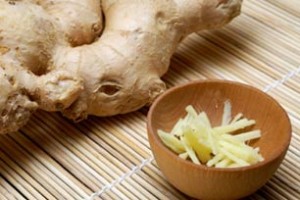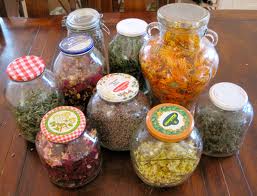Active substances in ginger are killing cancer cells in lab experiments. This is the gist of laboratory studies led by Dr. J. Rebecca Liu at the University of Michigan Medical School. The findings on these studies were presented at the annual meeting of the American Association for Cancer Research.
In the past it has been implied that the substances (6)-gingerol and (6)-paradol interfere with carcinogenic processes. Gingerol also has been linked with antioxidant and anti-inflammatory properties.
The research group from Ann Arbor used whole ginger extract which was standardized to a contents of 5% (6)-gingerol to explore the death of ovarian cancer cells in vitro. They suggest that ginger can circumvent chemoresistance.
Due to this quality ginger substances can be effective in cancer cells that have been resistant to chemotherapy.
Other substances and their effect on cancer cells that are closer examined by the researchers are resveratol and curcumin.
More information about ovarian cancer: http://nethealthbook.com/cancer-overview/ovarian-cancer/
Reference: The Medical Post, May 9, 2006, page 15
Last edited Nov. 1, 2014







